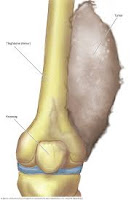The colon is a part of the digestive tract that connects the stomach and small intestine to the anus. The terminal portion of this colon is called the rectum, spanning approximately 12cm in length. About 20% of all cancers that occur in the colon arise in this rectum.
Bleeding is the most common symptom associated with rectal cancer, occurring in up to 60% of patients. Other frequent symptoms include change in bowel habit, and abdominal pain.
The diagnosis of rectal cancer usually involves colonoscopy, an examination of the colon using an instrument called colonoscope that enables an evaluation of the entire inner lining of the colon including the rectum. Once the diagnosis of cancer is made, the extent of the disease is often determined using a radiologic examination called CT scan. It allows an initial assessment of the extent of spread of cancer. In addition, an endoscopic ultrasound may be helpful in assessing the local spread of cancer. At the same time, routine blood tests including complete blood count (CBC), liver function tests, and a tumor marker called CEA are usually obtained during the initial evaluation.
There are 4 stages of rectal cancer. Rectal cancer is defined as Stage 1, if the cancer tissue is confined to the lining of the rectum. In Stage 2 cancer, the cancer tissue has invaded the layers of rectal wall, and may have invaded nearby organs such as bladder or uterus. In Stage 3 rectal cancer, the cancer tissue has spread to nearby lymph nodes, tiny bean shaped glands of lymphatic system. In Stage 4 cancer, the cancer has spread to other organs such as liver or lung.
The staging of rectal cancer is important since the prognosis of affected individual is highly dependent on the staging of cancer. For example, patients diagnosed with Stage 1 rectal cancer have overall 5-year survival rate of 74%. On the other hand, those diagnosed with stage 4 cancer can only expect 6% survival rate at 5 year.
The treatment of rectal cancer often involves combination of surgery, radiation therapy, and chemotherapy. Because of the complex anatomy of anal sphincter, there are various surgical techniques that may be utilized to preserve the anal sphincteric function. In addition, radiation therapy and chemotherapy are often administered to shrink the tumor, prior to performing the surgery.
 |
| http://cancers-list.blogspot.com/ |
 |
| http://cancers-list.blogspot.com/ |
Bleeding is the most common symptom associated with rectal cancer, occurring in up to 60% of patients. Other frequent symptoms include change in bowel habit, and abdominal pain.
The diagnosis of rectal cancer usually involves colonoscopy, an examination of the colon using an instrument called colonoscope that enables an evaluation of the entire inner lining of the colon including the rectum. Once the diagnosis of cancer is made, the extent of the disease is often determined using a radiologic examination called CT scan. It allows an initial assessment of the extent of spread of cancer. In addition, an endoscopic ultrasound may be helpful in assessing the local spread of cancer. At the same time, routine blood tests including complete blood count (CBC), liver function tests, and a tumor marker called CEA are usually obtained during the initial evaluation.
There are 4 stages of rectal cancer. Rectal cancer is defined as Stage 1, if the cancer tissue is confined to the lining of the rectum. In Stage 2 cancer, the cancer tissue has invaded the layers of rectal wall, and may have invaded nearby organs such as bladder or uterus. In Stage 3 rectal cancer, the cancer tissue has spread to nearby lymph nodes, tiny bean shaped glands of lymphatic system. In Stage 4 cancer, the cancer has spread to other organs such as liver or lung.
The staging of rectal cancer is important since the prognosis of affected individual is highly dependent on the staging of cancer. For example, patients diagnosed with Stage 1 rectal cancer have overall 5-year survival rate of 74%. On the other hand, those diagnosed with stage 4 cancer can only expect 6% survival rate at 5 year.
The treatment of rectal cancer often involves combination of surgery, radiation therapy, and chemotherapy. Because of the complex anatomy of anal sphincter, there are various surgical techniques that may be utilized to preserve the anal sphincteric function. In addition, radiation therapy and chemotherapy are often administered to shrink the tumor, prior to performing the surgery.
Rectal Cancer, Rectal Rectal Cancer, Rectal Cancer, Rectal Cancer, Rectal Cancer, Rectal Cancer, Rectal Cancer, Rectal Cancer, Rectal Cancer, Rectal Cancer, Rectal Cancer, Rectal Cancer, Rectal Cancer, Rectal Cancer, Rectal Cancer, Rectal Cancer, Rectal Cancer, Rectal Cancer, Rectal Cancer, Rectal Cancer, Rectal Cancer, Rectal Cancer, Rectal Cancer, Rectal Cancer, Rectal Cancer, Rectal Cancer, Rectal Cancer, Rectal Cancer, Rectal Cancer, Rectal Cancer, Rectal Cancer, Rectal Cancer, Rectal Cancer, Rectal Cancer, Rectal Cancer, Rectal Cancer, Rectal Cancer, Rectal Cancer, Rectal Cancer, Rectal Cancer, Rectal Cancer, Rectal Cancer, Rectal Cancer, Rectal Cancer, Rectal Cancer, Rectal Cancer, Rectal Cancer, Rectal Cancer, Rectal Cancer, Rectal Cancer, Rectal Cancer, Rectal Cancer, Rectal Cancer, Rectal Cancer, Rectal Cancer, Rectal Cancer, Rectal Cancer, Rectal Cancer, Rectal Cancer, Rectal Cancer, Rectal Cancer, Rectal Cancer, Rectal Cancer, Rectal Cancer, Rectal Cancer, Rectal Cancer, Rectal Cancer, Rectal Cancer, Rectal Cancer, Rectal Cancer, Rectal Cancer, Rectal Cancer, Rectal Cancer, Rectal Cancer, Rectal Cancer, Rectal Cancer, Rectal Cancer, Rectal Cancer, Rectal Cancer, Rectal Cancer, Rectal Cancer, Rectal Cancer, Rectal Cancer, Rectal Cancer, Rectal Cancer, Rectal Cancer, Rectal Cancer, Rectal Cancer, Rectal Cancer, Rectal Cancer, Rectal Cancer, Rectal Cancer, Rectal Cancer, Rectal Cancer, Rectal Cancer, Rectal Cancer, Rectal Cancer, Rectal Cancer, Rectal Cancer, Rectal Cancer, Rectal Cancer, Rectal Cancer, Rectal Cancer, Rectal Cancer, Rectal Cancer, Rectal Cancer, Rectal Cancer, Rectal Cancer, Rectal Cancer, Rectal Cancer, Rectal Cancer, Rectal Cancer, Rectal Cancer, Rectal Cancer, Rectal Cancer, Rectal Cancer, Rectal Cancer, Rectal Cancer, Rectal Cancer, Rectal Cancer, Rectal Cancer, Rectal Cancer, Rectal Cancer, Rectal Cancer, Rectal Cancer, Rectal Cancer, Cancer, Rectal Cancer, Rectal Cancer, Rectal Cancer,












